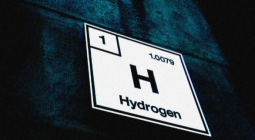Pollutionwatch: Olympic flame is a warning sign for hydrogen future

Burning the fuel in the cauldron symbolised its zero-carbon properties – but it does cause air pollution too.
The hydrogen flame above the Tokyo Olympic Stadium was symbolic of a zero-carbon future but illustrated a warning too.
Hydrogen, created using zero-carbon methods, looks set to play a big role in decarbonisation as energy storage and fuel. It can then be used in fuel cells to generate electricity or burned in boilers or generators. One option to decarbonise home heating is to inject hydrogen into the existing natural (fossil) gas pipelines. Studies are under way to reduce the explosion risk from hydrogen leaks, but less attention is being paid to the air pollution from combusting hydrogen.
It is widely claimed that burning hydrogen results in only water. While this is true of fuel cells it is not the case when hydrogen is burned. Like any high-temperate combustion, hydrogen flames lead to reactions between nitrogen and oxygen, and in turn to health-harming nitrogen dioxide pollution. It is unlikely that the nitrogen dioxide from hydrogen boilers will be worse than the fossil gas and oil used today, but it may not improve either. Replacing fossil gas heating with hydrogen may appear attractive compared with installing district heating, heat pumps and home insulation, but it would be a missed opportunity to reduce air pollution in towns and cities.
August 2021
THE GUARDIAN





